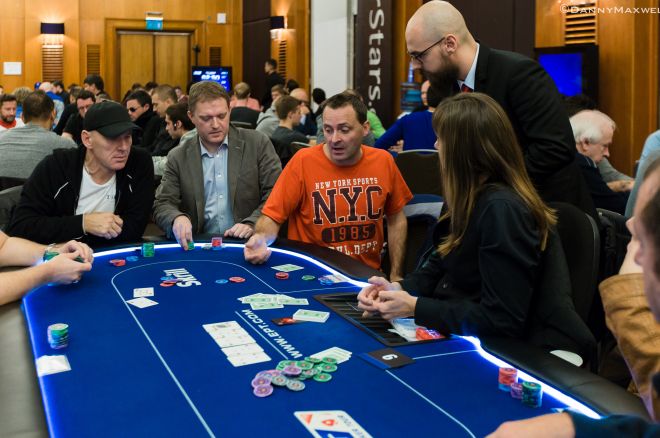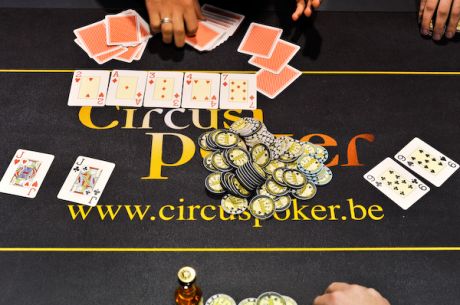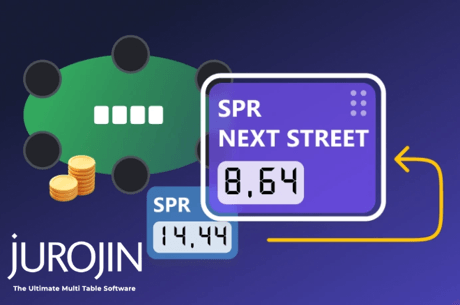How to Handle Disputes When Playing Poker in a Casino

If you play poker in a casino, it’s inevitable that once in a while you’ll be involved in disputes with other players. You need to know how to handle it when it happens.
The first thing to know is that dealers don’t settle disputes; they call for the floor. The floor is the person who supervises the dealers and is called to the table to settle any disputes about application of the rules of poker. (I’ve never completely gotten used to referring to a person as “floor,” but “floorman” has unfortunately sexist overtones, and “floorperson” is just awful, so I’ll stick with “floor” here.)
First, let’s consider a scenario in which you’re not involved. Perhaps a player put out chips sufficient to call a bet, then went back to his stack for more, and now there’s a dispute about whether that player announced “raise” or “all in” before his action. He claims that he did, but the dealer didn’t hear it. The floor will be called.
Typically what happens is that as soon as the floor appears, several people will loudly and simultaneously try to tell him or her what the issue is, what happened, and what should be done about it, often while impugning the intelligence, morals, and parentage of anybody who disagrees. The result is cacophony. Nobody can listen to several people at once. So instead let order reign: The floor will almost always want to hear from the dealer first, then from the players who are involved in the dispute, one at a time.
If you have no facts to add, then just keep quiet. However, sometimes you might have an observation that makes a difference. Maybe you’re sitting next to the player whose actions are in question, and you clearly heard his announcement. That’s relevant, and the floor will need to know about it, unless other witnesses are already volunteering that same information. But wait until the floor has talked to the dealer and the parties to the dispute. Then if you need to interject additional information, say something like, “May I offer my point of view?”
Basically the same guidelines apply in the situation where you are one of the players directly involved. Don’t try to shout down anybody else. Wait until the floor asks for your perspective on what happened. Then explain the relevant facts as calmly and clearly as you can. If there is tension, as often happens when a large sum of money is at stake, you can expect to get rudely interrupted when you say something with which another player disagrees. Don’t try to talk over him; when you get a chance, just continue: “If I may finish what I was saying….”
Why is an article on this topic being filed under the “Strategy” section rather than the (non-existent) “Etiquette” section? Because you want the decision to go your way, if it can. Of course, there are many cases for which there is only one possible outcome. But often, the floor has a lot of leeway, or has a close call, perhaps balancing the letter of the rule against what seems most fair, or deciding which of two versions of events to believe. How do you maximize your chances of a favorable outcome?
Simple. People serving as floor are as human as the rest of us, and respond, consciously or unconsciously, to their biases and preferences. People tend to look more favorably on others who are being polite, respectful, and deferential.
Think about a parallel situation, say, one in which you’ve been pulled over by a state trooper for speeding. You want to maximize the chance of getting off with a warning, rather than an expensive ticket, or a time-consuming trip to court, or getting tasered or worse. You want any discretionary leeway the officer has to be dispensed in your favor. So you say “please” and “thank you” and “sir” (or “ma’am” or “officer”). You don’t raise your voice. You don’t get angry. You don’t have to cower or be afraid to state your opinion or the facts as you see them, but the tone and manner in which you do so makes a world of difference.
The same thing applies to dealing with the floor. Don’t argue. Don’t insult. Don’t shout. Don’t embarrass or insult them. Smile. If the floor is going to have to decide whose version of events to believe, you want to be the more credible witness by being calm, clear, and confident, but simultaneously respectful of the floor, the dealer, and the other players. Candor also helps. If you’re not sure about either what you saw or heard, or what the applicable rule is, say so. Honesty earns you respect and credibility.
It also helps to have built up a fund of good will in advance. If the poker room personnel know from long experience that you are a consistently calm, level-headed, respectful, honest, non-angle-shooting player, then you will be in a good position to be believed, and to have discretionary close calls go your way over somebody who has an opposite history. Every interaction you have with every dealer and floor adds to your image either favorably or unfavorably. Try to make them all the former.
A dispute in a poker room is one of many in which it might be well to remember Rudyard Kipling’s famous advice, to “keep your head when all about you are losing theirs and blaming it on you.” You may not win “the earth and everything that’s in it,” but you may be awarded a nice pot that otherwise would have gone to somebody else.
Robert Woolley lives in Asheville, NC. He spent several years in Las Vegas and chronicled his life in poker on the “Poker Grump” blog.
Get all the latest PokerNews updates on your social media outlets. Follow us on Twitter and find us on both Facebook and Google+!








